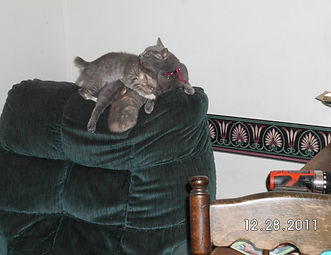Discussion instructions and Requirements
These instructions apply to ALL discussion lessons. For every discussion, you should always follow these instructions. Be aware that specific course discussion requirements might override or expand upon these guidelines.
Important: I strongly recommend composing and typing your discussion responses in Microsoft Word (or other word document program). This way, you have a copy on file and saved to your computer.
In the education classes, discussions are VERY important and are worth 100 points each (13 discussion lessons). Every discussion lesson includes articles to read, videos to watch, etc. Every discussion lesson contains questions to answer to the best of your ability. Finally, every lesson has a research component (questions) that YOU decide upon, research and write about in your discussion lesson response. In addition, you “vote” on the “best” peer posting.
In every document that you compose for each discussion lesson, always include the discussion questions and your research question. Below each question, compose your response. Include a "Summary" paragraph as the after the last lesson question and use your research as the last item in your posting.
A “sequence of events” for each discussion lesson might look like this:
-
Read the discussion instructions
-
Read or view all of the content associated with the lesson
-
Come up with your research question for the lesson
-
Do the research and record your thoughts (must have at least one reference included)
Start your word document.
Your Word document sequence should look like this:
Lesson Question 1
Your response (at least one paragraph)
Lesson Question 2
Your response (at least one paragraph)
(etc., etc.)
Your personal Summary (at least one full paragraph) of the discussion lesson content (which is usually the most important!)
Your research component involves the items listed below: (Include the headings that are in bold face!!!)
Your research question - YOU decide on the research question. It should be related to the discussion topic.
Your reference (somewhere in the document) - This must be a valid and reliable reference, an article, research paper, etc. It is NOT what your friend told you, what you heard, etc.
An analysis of your research (at least 2 full paragraphs (minimum) but not more than 4 full paragraphs). In other words, tell me and the other students in the class what your research stated (not your opinion) - in 2 FULL paragraphs. If this is a hybrid class, you are required to print out or take notes from your research and bring to class so that you can participate in a discussion. You are graded on the quality of your research and your analysis. You can receive up to 40 points for the research. If your research is 4 full paragraphs, you should receive 40 points (Considered to be "A" level work). If you type the minimun 2 paragraphs, you will not receive the full 40 points (Considered to be "B" level work). Do NOT copy words from your research and post as the analysis! The analysis must be in YOUR words!
A research Summary - This is at least one full paragraph. In the summary, I would like to know if you agree or disagree with your research. Of course, this could (unlike above) be construed an opinion of sorts, but you need to tell me WHY you agree or disagree with the research.
NOTE: All lesson discussions are due by the date in the assignment sheet and must be posted by midnight. You must reply to at least one peer, unless otherwise noted in the specific lesson.
When you have finished in Word, log into GeorgiaView (D2L). Go back to your still open Word document and “copy” all of your text. Then, navigate to your assigned discussion area, create (compose) a new message and "paste" your text into the discussion message area. Make sure that you "preview" your message BEFORE posting the message. This is to make sure that your formatting is correct and your responses do not "run together". You can add spaces as required. Now, "post" the message.
Post comprehensive paragraphs of any findings, perceptions, insights, or questions from your research or readings that you found particularly interesting, surprising, or controversial. Write a descriptive subject line that will help peers differentiate postings. You should ask yourself these questions:
-
What did you find the most interesting? Why?
-
Do you agree or disagree with the author of the reading(s)? Why or why not?
-
Describe one or two things you learned: For example, what do you now think about this _________concept or issue? How is that different from what you thought before? How do you plan to use what you have learned?
I have an alternative lifestyle family with my significant other, Dawn, my son, Cam, and Dawn's two children, Jaren and Talyn (aka Tinkerbell). We have lived in West Green for 5 years. We have 18 cats, 4 dogs, and 6 fish. And yes, the cats are spayed and neutered as soon as they get old enough. Most were strays we saved.




